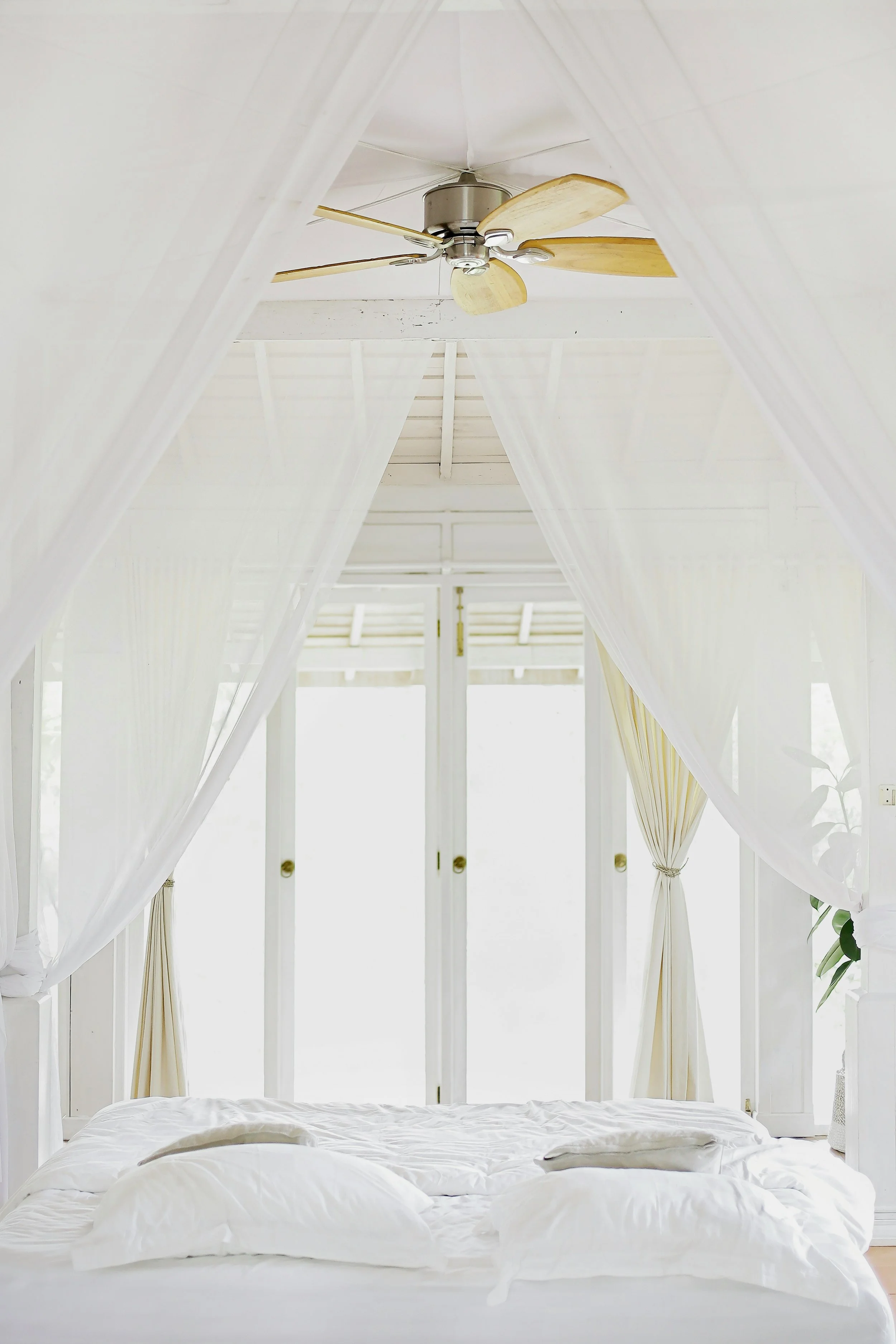Why Sleep Hygiene Alone Won’t Fix Chronic Insomnia (and What Does Work)
Sleep hygiene refers to a set of lifestyle practices and habits that are conducive to getting a good night's sleep on a regular basis e.g. eliminating screens and caffeine after a certain time, minimising alcohol intake, not eating a heavy meal before bed, and having a cool, dark, quiet bedroom.
It is often the case that people with chronic insomnia have absolutely PERFECT sleep hygiene! They have tried it all; the sprays, the supplements, the elimination of the nice things in life, and elaborate, multi-step, night-time rituals, all in the desperate hope that these external things will rid them of the insomnia.
Then, having spent no small amount of money, time, effort and energy on these ‘fixes’, they end up in a place where they’re even more frustrated, more stressed, and more anxious…now stuck in the vice-like grip of long-term insomnia.
To add to this frustrating scenario, oftentimes the sufferers will know the fortunate sleepers who will knock back a double espresso before bed and yet sleep like a dream! All those people who don’t undertake a finely-calibrated nighttime routine, and indeed do all the ‘wrong’ things according to sleep hygiene, but somehow, magically just…sleep?
But perhaps therein lies the clue.
If we ask a ‘good’ sleeper what they do to sleep, often they’ll just shrug and say ‘Ehh, nothing?!”.
They just don’t think about it.
They don’t anticipate, they don’t prepare, they don’t rely on external things…they don’t THINK about it.
Ultimately, sleep hygiene does not work for chronic insomnia, because it doesn’t tackle the root causes of insomnia. Chronic insomnia is frequently caused by our thoughts and mindset about sleep, therefore lifestyle fixes like sleep hygiene will never ultimately be the cure.
There is no evidence that sleep hygiene works for chronic insomnia.
Furthermore, sleep hygiene has no consensus definition in sleep medicine, and, most telling of all, sleep hygiene is often used as the ‘placebo’ control condition in insomnia treatment trials.
Having said that, sleep hygiene does have its place; it’s useful for those interested in sleep and keen to optimise it, it can uncover things we might be doing that can creep up unknowingly; and helps set a solid foundation for those with insomnia while undergoing insomnia treatment.
So what exactly are the differences between CBT-I and Sleep Hygiene?
1. CBT-I (Cognitive-Behavioral Therapy for Insomnia):
CBT-I is a structured, evidence-based psychological treatment specifically designed to target insomnia.
It addresses the underlying thoughts, behaviours, and emotions that contribute to sleep difficulties.
CBT-I typically involves several components, including cognitive restructuring (changing negative thoughts about sleep), stimulus control (reassociating the bed with sleep), sleep restriction (consolidating sleep by restricting time spent in bed), relaxation techniques, and sleep hygiene education.
CBT-I is often delivered by trained therapists in a structured format over several sessions, although self-help materials and online programs are also available.
The goal of CBT-I is to improve sleep quality and duration by addressing the underlying causes of insomnia and promoting long-term changes in sleep habits and attitudes.
2. Sleep Hygiene
Sleep hygiene refers to a set of behavioural and environmental practices that promote healthy sleep.
It focuses on optimizing the sleep environment and establishing consistent sleep habits to improve sleep quality.
Sleep hygiene recommendations may include maintaining a regular sleep schedule, creating a comfortable sleep environment (e.g., cool, dark, and quiet), limiting exposure to stimulating activities before bedtime, avoiding caffeine and alcohol close to bedtime, and incorporating relaxation techniques.
Sleep hygiene practices are generally straightforward and easy to implement, but they may not address the underlying cognitive and behavioural factors contributing to insomnia.
While sleep hygiene is an important component of overall sleep health, it is usually insufficient as a standalone treatment for chronic insomnia, especially when there are underlying psychological factors involved.
The evidence: data comparing CBT-I and Sleep Hygiene:
1. A randomized controlled trial comparing CBT-I and sleep hygiene education:
This study compared the efficacy of CBT-I with sleep hygiene education and found that CBT-I resulted in significantly greater improvements in sleep onset latency, wake after sleep onset, total sleep time, and sleep efficiency compared to sleep hygiene education alone.
2. A meta-analysis of studies comparing CBT-I to sleep hygiene education:
This meta-analysis included 34 studies and found that CBT-I was significantly more effective than sleep hygiene education in improving sleep onset latency, wake after sleep onset, total sleep time, and sleep efficiency.
3. A systematic review and meta-analysis of sleep hygiene as a treatment of insomnia:
This systematic review and meta-analysis of 12 studies found that sleep hygiene education was significantly less efficacious than CBT-I.
In Conclusion:
If you’ve already tried sleep hygiene but you’re still struggling, don’t lose hope. Chronic insomnia is highly treatable with the right approach. At The Sleep Sphere, I provide specialist CBT-I therapy in Cambridge (face-to-face) and online for clients in London and across the UK.
Book an appointment today and take your first step towards better sleep

